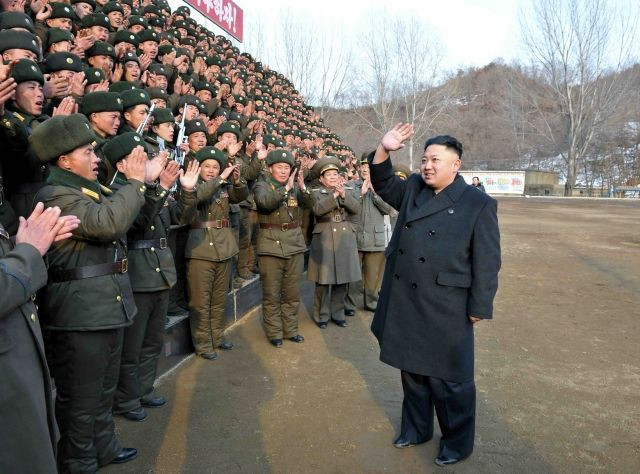
Two Musudan missiles, which were in position and launch-ready, were recently moved from the firing site on the country's east coast, according to U.S. officials. This news comes weeks after concerns that Pyongyang had been poised for a test-launch. Although these recent events have removed some anxiety in Seoul, Washington, and Tokyo, one U.S. official cautions that the missiles were still mobile and there is no guarantee they would not be set up elsewhere and fired at some other point.
"It is premature to celebrate it as good news," said another US official, Daniel Russel, the senior director for Asian affairs at the National Security Council.
However, according to a third U.S. official, the United States does not believe the missiles have gone to an alternate launch site but are in a non-operational location.
Musudan missiles have a range of roughly 3,000-3,500 kilometers (1,900 to 2,200 miles) and a possible test launch could have escalated tensions on the Korean peninsula.
This recent activity coincides with preparations by President Barack Obama to meet South Korean President Park Guen-hya at the White House, where they will hold talks, have a working lunch and follow this all by a joint news conference.
Pentagon spokesman George Little declined to comment on the status of the North Korean missiles.
"I wouldn't again comment on intelligence. But what we have seen recently is a 'provocation pause.' And we think that's obviously beneficial to efforts to ensure we have peace and stability on the Korean peninsula," Little told reporters.
The heightened tension with North Korea came as a result of U.S.-South Korean military drills, which Pyongyang had branded "a rehearsal for invitation." Part of these drills included tow nuclear-capable, bat-winged B-2 stealth bombers flying 37 ½ hours from their U.S. base to drop dummy munitions on a South Korean range and then return home, which was a rare show of force. The drills ended on April 30th yet still incited North Korea to threaten to attack U.S. bases in the Pacific.
While provocations from North Korea are nothing new, Little noted various possibilities behind Pyongyang's latest move, one of which he attributes to helpful statements from the Chinese government.
"We do think they (China) probably - again I can't speak for them - they probably heard very loudly from us and from others the need to ratchet it back and lower the temperature," Little said.
Recently, The Bank of China, China's largest state-owned band, has shut down all of the accounts from North Korea's bank, the North Korean Foreign Trade Bank. No information is known as to how much was in these accounts but it is known they were used to fund weapons programs, including the successful nuclear bomb tests. The U.S. imposed sanctions on North Korea's main foreign exchange bank after the recent nuclear tests and urged other countries, including china, to cut ties with the bank. This is the first time that a Chinese entity has made a move against North Korean interests following the recent tension, according to reports.
Following these recent developments, Russel told reporters it was too early to determine whether or not this move away from a launch was encouraging.
"It's premature to make a judgment about whether the North Koreans' provocation cycle is going up, down or zigzagging," he said. "The decision to launch or not launch missiles, to conduct a provocation or to stand down or defer it, is a decision that rests with the North Koreans."
© 2025 Latin Times. All rights reserved. Do not reproduce without permission.




